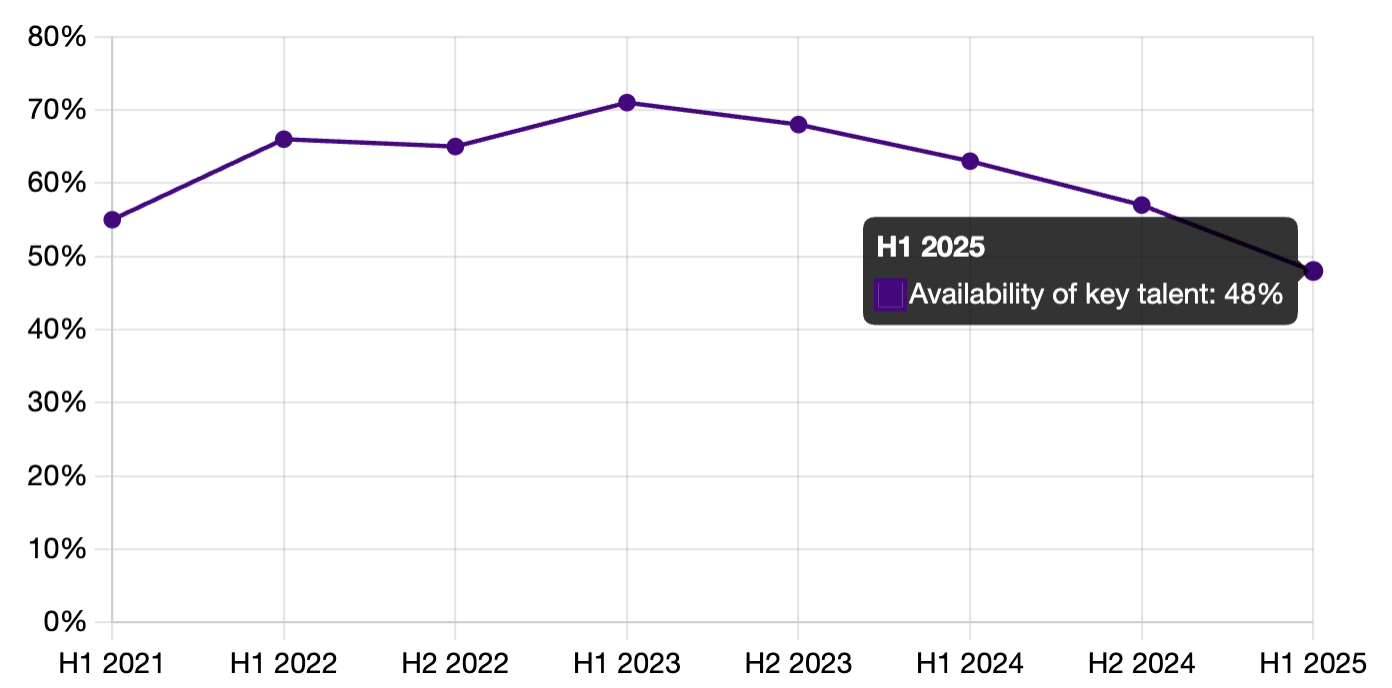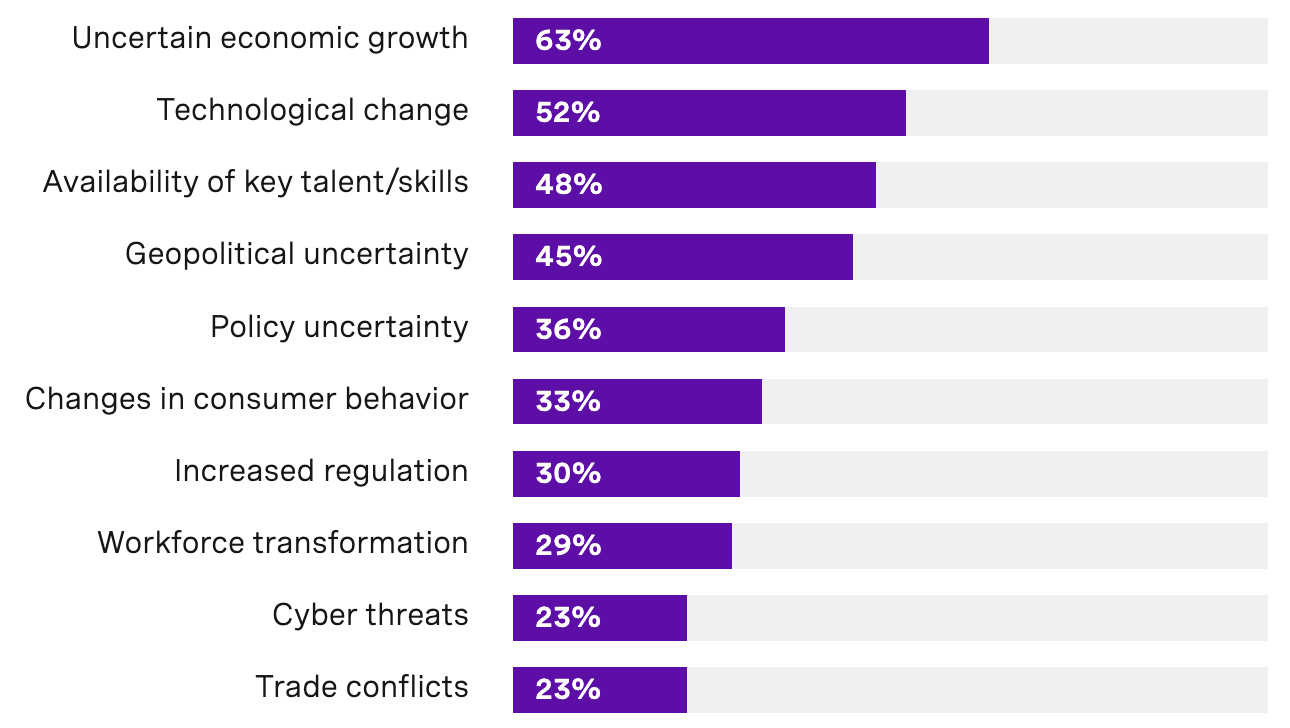
What are the top concerns of global leaders in 2025?

Leadership's concerns about their workforce plunged to their lowest level since 2021, according to a new report, as more pressing external threats emerge for leaders.
The Global Leadership Monitor released by Russell Reynolds Associates saw concerns over talent availability dropped to third place in the first half of the year, down from its previous second-place position.
As per the report, 48% of more than 3,000 global board directors, CEOs, C-suite leaders, and next-generation leaders cited talent availability as one of their top five threats.
This is down from the previous 57%, a 23-percentage-point drop from its peak of 71% two years ago.

Similarly, workforce transformation concerns also fell four places in the rankings over six months after only 29% of global leaders cited it as an external threat, down from the previous 42%.
"Via conversations with leaders globally, we've heard that this drop isn't due to a deprioritisation — rather, it's that there are so many other pressing issues that leaders need to apply more focus elsewhere," the report read.
One of the top external threats to organisational growth that leaders are looking at is economic uncertainty, which was cited by 63% of global leaders, up by four percentage points.
"The level of concern has intensified in the past six months. With trade tensions building and policy changes on the horizon when we surveyed leaders in March 2025, it's unsurprising that more leaders have considered economic uncertainty a top five concern," the report read.
In fact, trade conflicts landed on the 10th spot of leaders' top external threats in the report, entering the top 10 for the first time.
Policy uncertainty also rose to fifth place in 2025 from its previous ninth spot, with the percentage of leaders citing it as a concern surging from 28% to 36%.

Meanwhile, the threat of technological change rose from third to second place in six months, according to the Global Leadership Monitor.
This is despite the decline in the percentage of leaders citing it as a threat, from 54% to 52% in 2025.
"This rise in threat level underscores the accelerating pace of AI and its profound implications for business models and strategies," the report read.
It also found a critical leadership skills gap when it comes to the implementation of AI. According to the report, only 41% of leaders feel confident in their personal ability to implement AI in their organisations, despite 82% saying that having strong AI understanding is crucial for C-suite executives.
Constantine Alexandrakis, president and CEO of RRA, said the significant reshuffling in threat rankings represent increasing economic concerns, a shift in geopolitics, and rising trade issues.
"Confidence in leadership will continue to be tested as market volatility is stretching organisational resilience," Alexandrakis said in a statement. "This report highlights an urgent need for decisive leadership to counterbalance these conditions."
But preparedness among leaders for some of the challenges appears to be on the decline, particularly for uncertain economic growth.
Only 40% of leaders said they are prepared for this challenge, down by one percentage point from a year ago. This is also the case for the following external threats:
On the other hand, preparedness for the threat of talent availability went up by three percentage points to 43%. This is also the case for workforce transformation (+1%).
Preparedness for technological change also increased by one percentage point, as well as for cyber threats, which went up by two percentage points.
RRA's finding of uncertainty being leaders' top concern reflects recent data that indicated execution of critical priorities is a challenge for CEOs in uncertain times.
Findings from the Boston Consulting Group (BCG) revealed that 40% of CEOs feel unprepared for the market shocks in 2025, with two-thirds planning to invest savings from cost-reduction efforts into growth.
Leading through a period of uncertainty will need leadership to set ambitious cost targets and be confident that their organisations can deliver, according to the BCG.
"When done right, effective cost management enables companies to execute their highest-order objectives: spurring innovation, entering new markets, upskilling talent, and more," it said on a recent insight.
To do this, BCG offered the following advice:
"They must closely monitor market signals, filter out the static, and spot opportunity where the competition only sees opposition," BCG said. "Successful leaders will cut costs, streamline their portfolios, and dedicate significant resources to stay ahead of the news cycle."